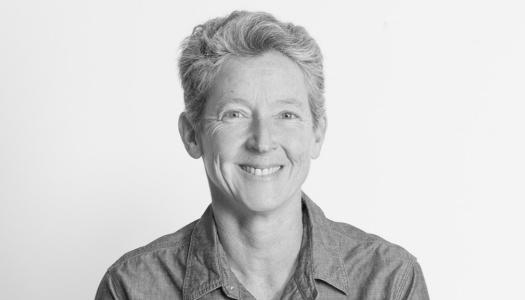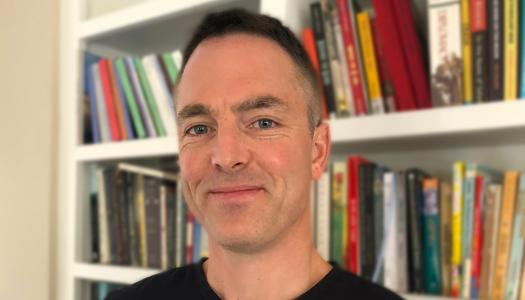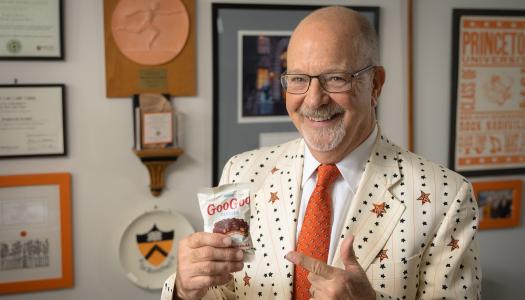Ugandan Olympic rower Kathleen Noble ’18 strokes opportunity for Princeton applicants in East Africa
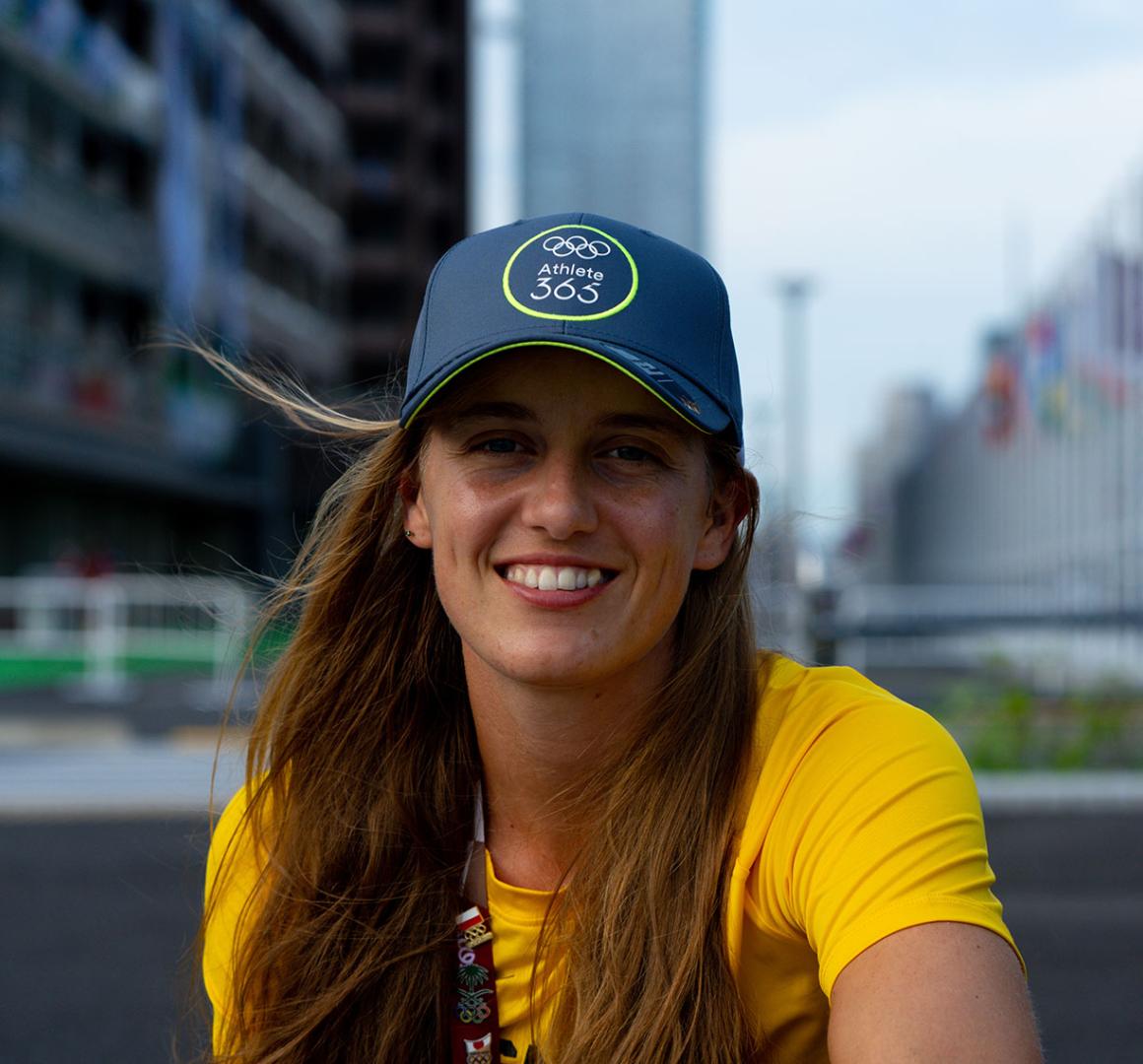
Photo courtesy of Kathleen Noble
Outdoors, under blue skies at her Tennessee home on a fall afternoon, Kathleen Noble ’18 was far from the media attention she received at the Paris Olympics months ago when she was co-captain of the Ugandan team and flag-bearer in the closing ceremony. The two-time Olympian flashed a charismatic smile toward her Zoom screen. “It’s fun to have conversations with young people who are excited about their future,” she said, an observation that might be echoed by the many journalists who have chronicled Noble’s own electrifying career as the first Ugandan rower to compete in the Olympics.
At this moment, though, Noble wasn’t talking about herself or her Olympic journey, but about another important role she holds, as a Princeton Alumni Schools Committee (ASC) volunteer. Since she graduated in 2018, she’s interviewed prospective students from Utah and Colorado, and in recent years, she’s served on the regional ASC team for East Africa.
Noble and the more than 7,000 other alumni who volunteer to interview prospective students each year are part of a distinctive tradition. These ambassadors for the University play a crucial role in the admission cycle, striving together to reach the remarkable goal of providing an interview to every applicant who would like one — no matter where they live. The conversations are sometimes the candidates’ only personal interactions with a representative of the University, signaling the care that Princeton takes for each applicant. It’s a Princeton tradition with a compelling personal quality, and a testament to the dedication of alumni to represent the University: call it Tiger heart.
For Noble, who’s juggled not just work responsibilities and home life but also time-intensive training at the highest level of athletic competition, making space for these interviews has been meaningful. Whether it’s rowing for her country of origin or serving as an ambassador for Princeton, she defines success as creating long-lasting impact for others. “As I think about interviewing for East Africa, something that’s exciting for me ties back to my interest in developing rowing in Uganda,” she said. “It’s this question of what opportunities are available for people that can completely transform their lives.”
Rowing for Uganda: Princeton roots
Noble was born and raised in Uganda, the daughter of a doctor and a teacher who moved from Ireland as missionaries just months before her birth. A natural athlete, she thrived on competitive sports, and her first love was swimming. At 17, she represented Uganda at the 2012 FINA World Swimming Championships in Istanbul, setting a record for the country’s best time in the 50-meter butterfly.
Noble was drawn to Princeton by its liberal arts education. It was also one of the few schools on her American college wish list that offered need-blind financial aid and met 100% of demonstrated financial need for international students.
At Princeton, she took advantage of programs that allowed her to pursue diverse interests. Through the Princeton Internships and Civic Service program, she worked at a children’s hospital in Washington, D.C. Later, as an ecology and evolutionary biology major, she studied abroad in Panama for a semester and conducted research for her thesis in Madagascar.
While Noble opted not to play varsity sports in college at first, she soon found herself missing competition and the camaraderie of a team; she joined the lightweight women’s rowing team in her sophomore year. It was a perfect match for the aerobic capacity she’d developed as a swimmer. As a member of the varsity eight boat, she twice helped Princeton win bronze medals at the Intercollegiate Rowing Association National Championships.
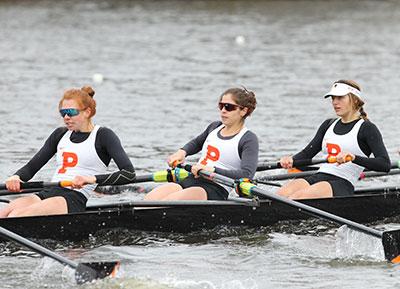
Rowing at Princeton also suited her great love for the outdoors. “Lake Carnegie is so beautiful,” Noble said. “I remember the first season that I joined, I just loved going down to the river every day and seeing the trees change and then the snow falling. It was just so magical.”
Her pivot to rowing led to another opportunity: In her junior year, Noble received an invitation to train with the Ugandan national team. She put her Princeton studies on pause for a year, but what she found in Uganda was a rowing community suffering from a severe lack of resources, including coaching and equipment. The boats she trained in on Lake Victoria were patched together with duct tape.
Her initial disappointment shifted, though, as she saw an opportunity “to be an advocate for our athletes back home.” Noble began shining a spotlight on Ugandan rowing, entering the 2016 World Under-23 Championships in Rotterdam, Netherlands, her first-ever race in a single scull. The spotlight grew as she qualified to represent Uganda in the women’s single scull events at the Tokyo Olympics in 2021 and the Paris Olympics in 2024.
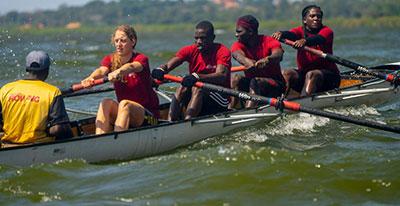
Noble knew her chances of medaling were slim at both Olympics (she finished 26th overall at each), but for her, that wasn’t the point. Her larger goal was to help create positive change for fellow Ugandan rowers. “Since I qualified for Tokyo, there’s been a change in momentum,” she said. “Things have happened in Ugandan rowing that wouldn’t have happened if I hadn’t had that attention.”
While Noble retired from rowing competitively after Paris so she could focus on her career as a software engineer, she hopes her legacy will be to encourage Uganda to develop additional resources for the sport and also inspire its athletes, especially young people. It’s that same urgency about creating opportunities for others that she brings to her volunteer work for Princeton.
Interviewing for ASC: an international ambassador
ASC conversations with applicants in Kenya, Rwanda and Uganda are fun for Noble and provide a connection to home. They also “remind me how lucky I was to get to come to Princeton,” she said. With roots in Ireland, Uganda and now the U.S., Noble can also share the helpful perspective she’s developed on identity and belonging. “I feel like I’m a citizen of the world,” she said. “Any students who come to Princeton from East Africa are going to have that kind of question of trying to find where they belong.”
For Noble, living in different continents has been a privilege. Her counsel for the applicants she meets with is welcoming and simple: “You just have to make connections in the places you are and make home wherever you are.”
She also likes sharing advice she wishes she could have told her younger self when she was applying to college. For example? “Think about what you want longer term. There are so many opportunities to get exposure to things. Don’t spend all your time in the library. Take advantage of as many of those opportunities as you can to meet people and connect with people and have conversations with people in different careers and find out what has made their lives meaningful.”
As a Princeton ambassador, Noble is part of an alumni team keeping the ASC tradition strong, one conversation after another, in offices in the cities where they work, in coffee shops in their hometowns and through the power of the internet. The beat of that Tiger heart is global.
Noble understands that her volunteer work provides a unique and valuable human connection both for the candidates and for the Office of Admission.
“From the perspective of the African students who I’m interviewing, I think it’s nice for them to talk with someone who has some reference for their experience and the world that they live in,” she said. “And I think from the perspective of Princeton, it’s helpful to have someone who has a reference for the world that candidates are coming from. I can speak a little to the significance of things that candidates say and their experience that maybe wouldn’t be obvious to someone else.”
Alumni Schools Committee volunteers who have earned undergraduate or graduate degrees at Princeton strive to meet with all undergraduate applicants who would like an interview, and each year are able to do so for about 95% of those candidates. If you’re interested in supporting this tradition by serving as an ambassador for Princeton, please complete this form to conduct virtual or in-person regular decision interviews for the great Class of 2029 in January and February 2025.
